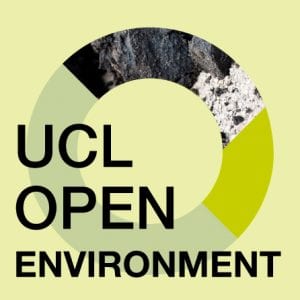UCL Press exceeds ten million global downloads
By Alison Fox, on 15 April 2024
UCL Press, the UK’s first fully Open Access University Press, has announced that its open access books and journals have been downloaded more than ten million times around the world.
UCL Press’s pioneering publishing programme spans many of the major academic disciplines, from history to philosophy and the sciences to anthropology. The Press has published 339 books that have been downloaded more than 8.7 million times, whilst its 14 journals have attracted more than 2.6 million downloads.
Its publications – which feature monographs, edited collections, academic journals and textbooks – have reached readers in 242 countries and territories worldwide, providing access to vital academic research to readers in the Global South and beyond.
The ten millionth download was the journal article A short history of the successes and failures of the international climate change negotiations by Mark A. Maslin, John Lang and Fiona Harvey, which appeared in the pioneering open science journal UCL Open: Environment.
The most popular title in the UCL Press list continues to be How the World Changed Social Media by UCL Professor of Anthropology Daniel Miller and a collective of eight other global anthropologists. The first book in the hugely popular 11-book Why We Post series, it has been downloaded an astonishing 828,129 times since it was published by UCL Press in early 2016, and it has been translated into a variety of languages, including Hindi, Tamil, Portuguese and Italian.
Paul Ayris, Pro-Vice-Provost at UCL LCCOS (Library, Culture, Collections and Open Science), commented: ‘Started in 2015, UCL Press continues to get better and better. 10,000,000 downloads and consultations underline the transformative effect that Open Access can have, particularly in the OA monograph space. UCL is proud to be developing a sustainable model for institutional OA publishing in Europe.’
Lara Speicher, Head of Publishing at UCL Press, said: ‘It is an immense achievement to have achieved 10 million downloads for UCL Press’s publications and it is thanks to the combined contributions of our incredibly talented and forward-thinking authors who have embraced the OA model, the original vision of senior leaders at UCL to start the Press in the first place and to provide ongoing support and encouragement, and last but not least, the dedication, skill and commitment of the UCL Press team who work hard behind the scenes every day to bring UCL Press’s outputs to the world.’
 Close
Close









